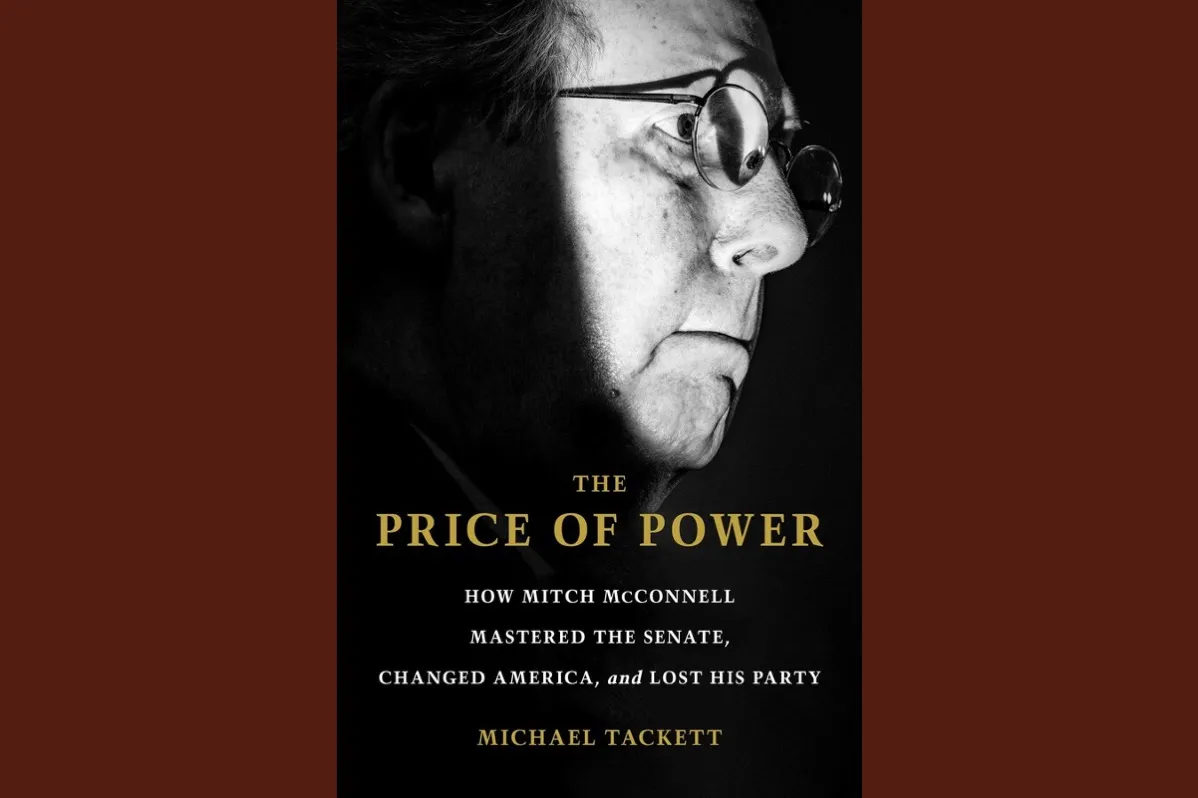Will Donald Trump’s claim that U.S. auto workers “don’t build cars” cost him the election in crucial Michigan, historic home of the American auto industry?
If it does, the slur might go down in history next to “Rum, Romanism and Rebellion,” a slam that kept James G. Blaine out of the White House in 1884.
James who? Time for a history lesson.
“Blaine was the most popular Republican of his generation,” wrote Paul F. Boller Jr. in Presidential Campaigns. There were no polls 140 years ago. But as election day drew nigh, Blaine and Democrat Grover Cleveland seemed to be neck-and-neck. New York state was a key — if not the key — to victory.
Today, less than three weeks before Nov. 5, polls show a tight race between Republican Trump, who wants back in the White House, and Vice President Kamala Harris, the Democratic hopeful. Both campaigns see Michigan as a must-win.
Trump dissed auto workers at a Tuesday gathering of the conservative, business-friendly Economic Club of Chicago. He told an interviewer, “Mercedes-Benz will start building in the United States, and they have a little bit. But do you know what they really are? Assembly, like in South Carolina. But they build everything in Germany and then they assemble it here. They get away with murder because they say, ‘Oh yes, we’re building cars.’ They don’t build cars. They take ’em out of a box, and they assemble ’em. We could have our child do it.”
Back to the history lesson. In 1884, the Democrats were victory starved. They hadn’t won a presidential election since 1856, five years before the Civil War started. (Vice President Andrew Johnson, a Democrat, became president in 1865 when Republican Abraham Lincoln was assassinated and served until 1869. In 1864, Lincoln and Johnson ran on a Union ticket.) Democrats counted on Cleveland, the governor of New York, to break the losing streak. The Republicans banked on Blaine to keep the shutout going. He was a former congressman, House Speaker, senator, and secretary of state.
The Republicans figured they’d hit political paydirt in July when a GOP newspaper in Buffalo, Cleveland’s hometown, printed a story revealing “Grover the Good,” a bachelor, “had taken up with a thirty-six-year-old Buffalo widow, had a son by her, and had since provided financial support for the two of them,” Boller wrote.
Team Blaine’s press allies heaped scorn on Cleveland as “a gross and licentious man,” a “moral leper” and worse, according to Boller.
Gleeful Republicans chorused, “Ma! Ma! Where’s my pa?”
Defensive Democrats shot back, claiming Blaine, dubbed “the Plumed Knight,” was a lying crook. Cleveland partisans chanted “Blaine! Blaine! James G. Blaine! The continental liar from the State of Maine!”
Cleveland v Blaine grabbed headlines as far afield as Great Britain. Boller wrote that Lord Bryce, the well-known British academic and politician, suggested that the main issue was “the copulative habits of one and the prevaricative habits of the other.”
Anyway, election day was Nov. 4. On Oct. 29, Blaine was in New York City, evidently hoping to boost support in the Big Apple. To that end, he visited a large meeting of Protestant Republican pastors at a local hotel where a speech by the Rev. Samuel D. Burchard, Presbyterian, unwittingly did his candidate in.
There was a Kentucky connection to the well-known local man of the cloth. Burchard grew up in the Bluegrass State and graduated from historically Presbyterian Centre College.
Boller quoted the pastor: “We are Republicans, and don’t propose to leave our party and identify ourselves with the party whose antecedents have been Rum, Romanism, and Rebellion.”
Blaine didn’t respond to Burchard’s remarks. Either he didn't hear them or ignored them.
But a Democratic reporter covering the conclave recognized "Rum, Romanism, and Rebellion” as political dynamite, and he lost no time informing party bigwigs. According to Boller, Sen. Arthur P. Gorman of Maryland, who chaired the Democratic National Executive Committee, demanded, “This sentence must be in every daily newspaper in the country tomorrow, no matter how, no matter what it costs. Organize for that immediately ... and it must be kept alive for the rest of the campaign.”
And thus, “within hours the Democrats were spreading handbills quoting Burchard throughout New York City and elsewhere, and by the time Blaine got around to disavowing the clergyman it was too late,” Boller wrote.
So why was the remark so disastrous to Blaine’s campaign?
“Rum, Romanism” was aimed at Irish immigrants and was based on WASPish bigotry that Catholic sons of Erin were roaring drunks. Hence, New Yorkers of Irish origin voted for Cleveland in droves.
“Rebellion” referred to the Democrats, whom the Republicans blamed — not without justification — for the Civil War. The party’s powerful, pro-slavery Southern wing conspicuously led the secession movement in 1860-1861. Democrats dominated the Confederate government, too.
While many Northern Democratic politicians and newspaper editors wanted the rebellion put down and the Union restored, many others, dubbed “Copperheads” by the GOP, actively opposed the Civil War. Some openly sympathized with the Confederates.
In any event, on election day, the Empire State handed Cleveland the win.
Blaine was philosophical in defeat. Boller quoted the “Plumed Knight”: “I should have carried New York by 10,000 if the weather had been clear on election day and Dr. Burchard had been doing missionary work in Asia Minor or Cochin China.”
In a letter, he lamented, “As the Lord sent upon us an ass in the shape of a preacher and a rainstorm, to lessen our vote in New York, I am disposed to feel resigned to the dispensation of defeat.”
Addendum
- Cleveland’s victory prompted happy Democrats to append another line to the Republican jeer, “Ma! Ma! where’s my Pa?” They added, “Gone to the White House, Ha! Ha! Ha!” Democrats nationwide rejoiced at Cleveland's victory.
- “Folsomdale,” a community in then strongly Democratic Graves County, Ky., was named in honor of Francis Folsom, whom Cleveland married in the White House in 1886.
- Republican Benjamin Harrison defeated Cleveland in 1888. Cleveland beat Harrison in 1892. If Trump wins, he will become only the second president to win two terms, but not in succession.
- Cleveland won the popular vote in 1888. So did Democrat Hillary Clinton in 2016. But Trump won the electoral vote.
--30--
Comments








